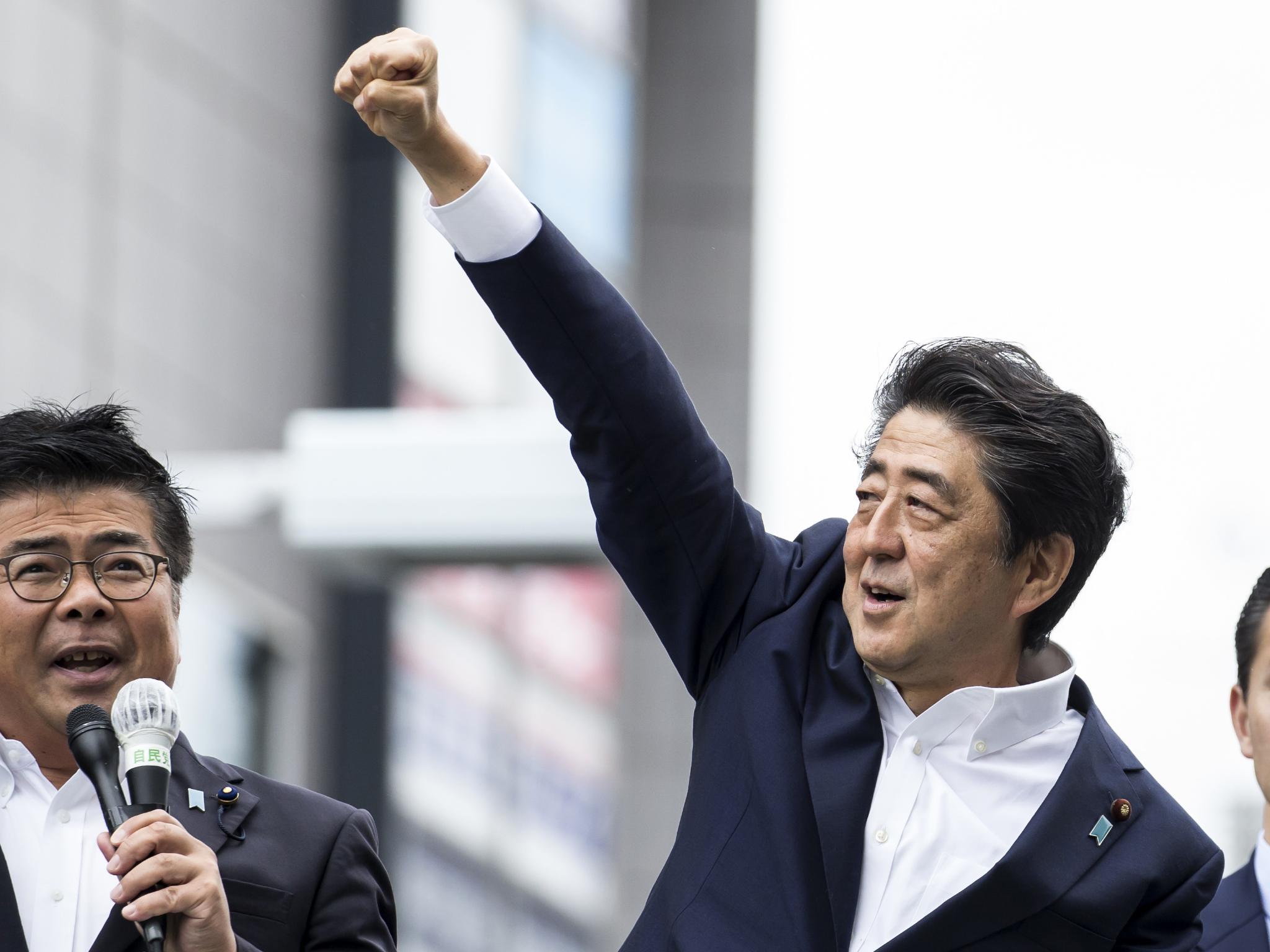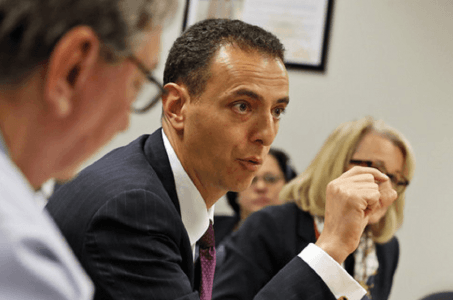Japan Pro-Casino Ruling Coalition Wins New Term, But Time Running Out for Osaka’s 2025 Masterplan
Posted on: July 22, 2019, 03:29h.
Last updated on: July 22, 2019, 05:17h.
Japanese leader Shinzo Abe declared victory for the pro-casino ruling LDP/Komeito coalition on Sunday, having secured a majority in upper house elections that should see him become the country’s longest-serving prime minister ever, despite being beset by corruption scandals over the past two years.

Abe’s LDP won 71 of the 124 seats up for grabs in the 245-member chamber but fell short of the super-majority needed to push through the party’s longstanding goal of revising Japan’s pacifist constitution, adopted in the aftermath of the WW2.
“I would like to express my gratitude to the voters,” said Abe in a press conference, Monday afternoon. “This is a choice between political stability and chaos. We asked the voters to choose between these two options and many people listened to our speeches on the streets.”
Abenomics Marches On
But not that many. The turnout — less that 50 percent — was the second lowest since the war. Nevertheless, the result represents public faith in so-called “Abenomics” — an economic policy pursued since 2012 that includes casino liberalization and aims to elevate the Japanese economy from the stagnation it has experienced since the 1990s.
It also represents continuity for the largely unpopular casino liberalization process, which was put on hold in the run up to the elections.
Observers speculated that the government had mothballed plans to create administrative body to oversee the process, as well the necessary “basic policy” — a framework of regulation for the impending casino market — until after the elections, fearing it would be hurt at the ballot box.
Those opposed to casinos have consistently outnumbered those in favor by 2:1 in polls. One survey, conducted in Japan’s second biggest city, Yokohama, found that a staggering 94 percent of respondents had a negative viewpoint on the idea of a casino in their city.
The international operators lining up in the hope of winning a piece of what may quickly become the world’s second biggest casino market may applaud the election result, but the delay that the elections have caused is not good news for Japan’s third biggest city, Osaka.
Osaka for the Win
Osaka is by far the most enthusiastic of Japan’s major cities to host a casino resort. Last year, it won the bid to stage the World Expo in 2025, which it expects will attract 28 million visitors from home and abroad, generating an estimated $17.6 billion for the local economy. But it wants to have a spectacular integrated resort up and running in time so it can capitalize on the tourism boost.
Many major operators, such as MGM Resorts and LVS, see Osaka as the most attractive option for a future resort, and competition to court the city is fierce.
MGM Resorts CEO Jim Murren told Nikkei Asian Review in March that Osaka’s 2025 deadline was “incredibly tough but not impossible.”
Now, with another term secured, the LDP/Komeito policymakers must press on with the groundwork, or Osaka’s vision for the World Fair will become even more difficult to realize.
Related News Articles
Connecticut Satellite Casino Blueprint Leaves Some Locals Underwhelmed
Most Popular
Las Vegas Overstated F1 Race’s Vegas Impact — Report
Vegas Strip Clubs Wrestle in Court Over Animal Names
Most Commented
-
End of the Line for Las Vegas Monorail
— April 5, 2024 — 90 Comments -
Mega Millions Reportedly Mulling Substantial Ticket Price Increase
— April 16, 2024 — 6 Comments -
Long Island Casino Opponents Love New York Licensing Delays
— March 27, 2024 — 5 Comments -
Nearly Abandoned Mall Outside Vegas Soon to Have Only One Tenant
— March 12, 2024 — 5 Comments
















No comments yet